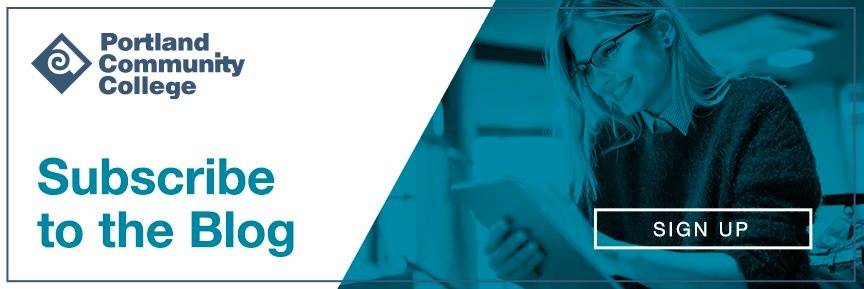People show they benefit from counseling when it helps them improve their lives by taking personal responsibility to change harmful behaviors. It's often challenging to push ourselves to make these changes ourselves. Even though we want to change, we may not feel ready for it. Which is where motivational interviewing becomes beneficial.
It is a counseling technique that enables people to find the intrinsic motivation to make positive changes in their lives. Understanding how it functions helps people, even if they don't struggle with issues like addiction but have friends or relatives who do.
We'll review Motivational Interviewing, how it helps people make positive changes, and who can benefit from learning about it.
What is Motivational Interviewing?
Motivational interviewing is a counseling approach that teaches patients how to recognize and resolve their ambivalent feelings about behavioral change, so they can move on to make positive improvements that impact their lives.
Many people have conflicting feelings about wanting to make positive changes. In practical terms, those conflicting feelings mean they may wish to change but are not ready to take the necessary steps. They can find the intrinsic motivation to embrace these positive steps through this counseling style.
Why Was Motivational Interviewing Developed?
To answer this question, you must consider who can benefit from motivational interviewing (MI) techniques. Motivational interviewing techniques initially aimed to treat people who struggled with substance abuse addiction.
Naturally, the technique also helps anyone who finds it difficult to change other kinds of personal, harmful behaviors. For example, in addition to substance abuse addiction, the MI interview technique also helps people with diabetes. People with diabetes learn to control their blood sugar levels by developing positive attitudes toward weight loss, food choices, and exercise activity.
MI is an effective, evidence-based therapy for people needing to discover and evolve their motivation for healthful changes. Understanding how it functions can also help people who have friends or relatives currently struggling with any of these issues. It can teach you patience, understanding, and some of the underlying psychology to treat them fairly and support them as they better themselves.
How Can MI Help Therapists or Psychologists Treat Patients?
Therapists and psychologists use MI to create a supportive connection between the therapist and the patient. The therapist uses MI to facilitate the patient's development of healthful goals and a positive attitude toward making behavioral changes. It leads the patient toward feeling empowered to make positive changes, helping them overcome their ambivalence about the behaviors that stand in the way of making positive changes in their lives.
Developed by psychologists William R. Miller and Stephen Rollnick, psychologists generally consider Motivational Interviewing as a client-centered interview technique that helps patients explore and resolve ambivalent attitudes toward behavioral changes. Typically, it occurs in short-term counseling sessions but may also become part of longer-term therapies.
The Components of Motivational Interviewing
Four parts form the basis of MI in therapy sessions:
- Empathy. The therapist listens intently and expresses understanding of the patient's feelings, background, and experiences.
- Support Self-Efficacy. The therapist supports the idea that the patient can succeed at making changes even if past efforts failed. The therapist points out their skills, strengths, and previous successes."
- Roll with Resistance. The therapist avoids argumentative responses when the patient becomes resistant to ideas of change. They guide the patient to consider multiple viewpoints.
- Develop Discrepancy. The therapist helps the patient identify the discrepancies between their current situation and their future goals, helping them toward solutions to their discrepancies to achieve these goals.
Therapists and psychologists use four skills to carry out the above Motivational Interviewing tenets:
- Open-ended questions
- Affirmations
- Reflections
- Summaries
These skills are known by the acronym OARS. In addition to increasing the patient's motivation, the end goal is the patient's personal commitment to change.
What Is Portland Community College's Certificate of Addiction Counseling?
Portland Community College prepares therapists or psychologists in the MI technique through the less-than-one-year Certificate of Addiction Counseling. Part of that degree program is a course called Motivational Interviewing and Addiction. Students who complete the course earn four credits toward the Certificate Program. More importantly, perhaps, the course allows students to demonstrate skills in motivational interviewing that helps facilitate patients to develop motivation to change. Acceptance into the Addiction Counseling Program is a prerequisite for the class.
In Oregon, addiction counselors work in both public and private sector organizations. As addiction counselors, they provide assessments and diagnoses for substance abuse patients. They also provide education, referrals, and treatment options to those patients.
The Addiction Counseling Program provides PCC students with the educational credits and half the supervised patient hours needed for accreditation as a Certified Alcohol and Drug Counselor in Oregon and the Mental Health and Addiction Certification Board of Oregon.
Several four-year institutions accept the PCC addiction counseling credits toward their degree programs, subject to the approval of each institution.
Get Started Today
Are you one of the professionals who can benefit from motivational interviewing techniques? Getting started is easy if you plan a future as an addiction counselor or want to add MI to your arsenal as a psychologist.
Visit the PCC website today to learn more about the admissions process. Whether you are a first-time student with some college credit or a high school student, you can start your enrollment today.


